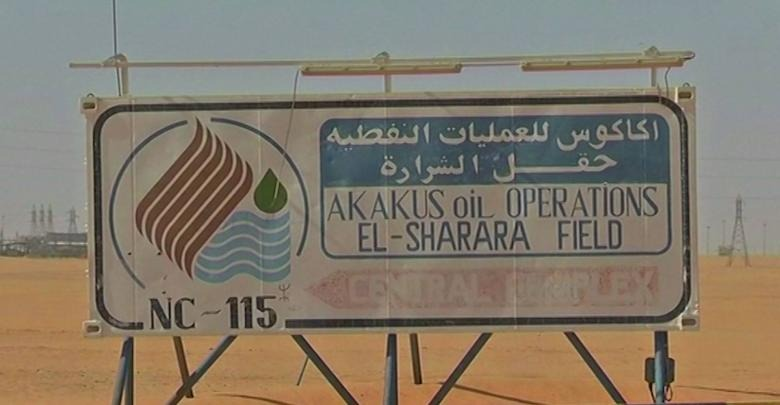
The Government of National Accord (GNA) and Libyan National Army (LNA) have restarted peace talks, the United Nations Support Mission in Libya (UNSMIL) has said, although hostilities appear to be continuing on the ground.
A statement from UNSMIL said the talks between the two sides had resumed based on a draft agreement submitted during the Joint Military Commission (JMC) talks on February 23.
General Khalifa Haftar has led the LNA and stepped up his claim to power at the end of April, saying his military forces had the mandate to lead the country and tackle terrorism. The LNA’s siege of Tripoli suffered a major reversal on May 25 as support for the offensive from Russia’s Wagner Group was withdrawn.
“Since the last set of negotiations, in February, there has been a significant shift in power on the ground. Haftar has been reluctant to make concessions but now the GNA has the upper hand. To look at it optimistically, greater parity should make the two sides more amenable to a deal,” Chatham House’s senior research fellow Tim Eaton told Energy Voice.
However, Eaton continued, Haftar has “never shown a willingness to negotiate. His previous response to setbacks has been to escalate rather than to cut a deal.”
The resumption of talks is in step with the “desire and calls of the overwhelming majority of Libyans who long for a return to a safe and dignified life as quickly as possible”, UNSMIL said.
The agency went on to express hope that Libyan and international actors would abide by the desire to bring fighting to an end. UNSMIL said countries providing support to parties in the conflict should abide by various international agreements, singling out the importance of an arms embargo.
The resumption of JMC talks should lead to a humanitarian truce and a “lasting ceasefire”, it said, noting the challenge of responding to the coronavirus pandemic.
Human Rights Watch has reported that retreating LNA forces have left antipersonnel landmines and booby traps, seemingly targeted at returning internally displaced people. The NGO reported these have been left in the south of the city, with UNSMIL voicing concerns about residents returning to homes in the Ain Zara and Salahuddin areas.
Such actions serve no military purpose, UNSMIL said, while provoking fear among the population and violating the rights of civilians.
The JMC negotiations will be carried out by videoconference, UNSMIL said, expressing the hope that those taking part would bring a “professional, serious and responsible spirit”, as seen during the first and second rounds of talks in Geneva. These took place in February.
“There’s also a question as to whether the UN can really mediate. It is Turkey that backs the GNA and Russia, the UAE and Egypt that backs Haftar. It may well be that a way forward would be set through a Turkish-Russian mediated process,” Eaton said.
Despite the UNSMIL statement, reports from the country suggest conflict is continuing.
Conflict in Libya is driven by a number of competing interests, from the external actors, to the composition of the LNA and GNA forces. Conflict between the two sides has forced a degree of cohesion but this is not guaranteed to endure.
“If Haftar is removed, much of the LNA alliance would crumble, he’s the glue that binds it together,” Eaton said. Should he step back in some way there would be an internal struggle about who might be his successor – but there are prospects for similar conflict in the west.”
Libya’s economy is largely dependent on crude. Exports were shut down in January by the LNA, as talks were held in various European capitals in a bid to resolve some of the problems in the North African state. This has constricted revenues flowing to the National Oil Corp. (NOC), which were reported at around $50 million in April, down 97% on the year.
Verisk Maplecroft has predicted that the Sharara field is likely to restart production by the end of July, but Eaton was sceptical of a broader return.
“The oil blockade holds a gun to the heads of both sides, but such is Haftar’s bloody mindedness that we should be sceptical of a relaxation of this without some advantage. I don’t see what ends the blockade at the moment,” he said.
Geopolitics
Amid considerations of external actors in Libya, the role of the US should not be overlooked. A briefing from the US in early May described Russian military forces in Libya and Syria as having a “malign engagement”.
The US also praised last week Malta’s seizure of Russian-supplied currency, which was to be supplied to the eastern forces in Libya. Going a step further, the US embassy in Libya on May 25, in a statement commemorating those who died in World War II, said it was “proud to partner with the legitimate, UN-recognised government of Libya, the GNA, and all those who are prepared to protect freedom and peace”.
Eaton noted the various US actions, saying this demonstrated “a hardening of the US position towards Russia in Libya”.
This marks a reversal of comments from US President Donald Trump in April 2019, when he endorsed Haftar’s “significant role in fighting terrorism and securing Libya’s oil resources, and the two discussed a shared vision for Libya’s transition to a stable, democratic political system”.
